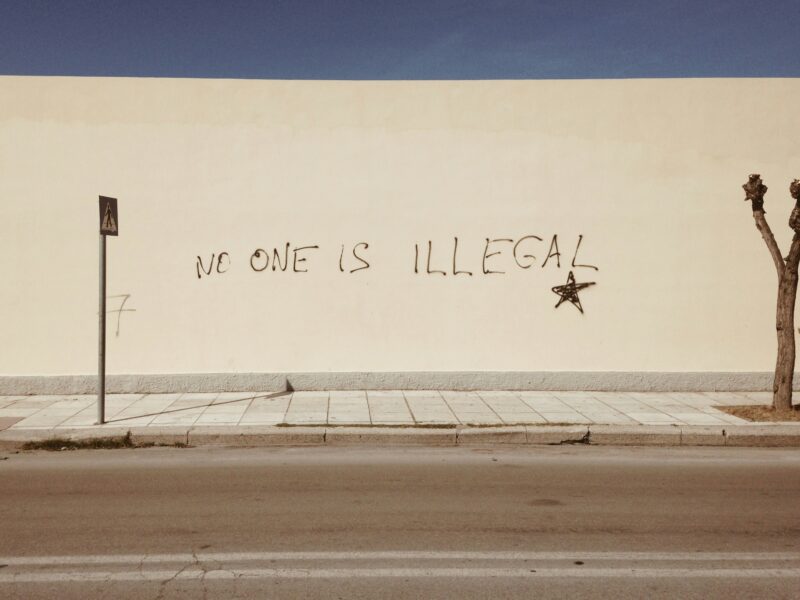Media release: Marking 5 years with an urgent call for change

Media Release
25 September 2025
Dalley Sundar marks five years with call for urgent change in immigration law
Auckland, 25th September 2025 – Specialist immigration and family law firm Dalley Sundar is marking its fifth anniversary with a clear message: New Zealand’s immigration system is failing too many people, and urgent change is needed.
Founded in 2020, the firm has spent five years at the coalface of the toughest cases – deportations, appeals, health and character issues, employment-related visas, surrogacy, adoption, and donor agreements.
“Every day, we see where policy on paper collides with reality – and it is people who pay the price,” says partner Pooja Sundar. “Families face being torn apart because rules don’t reflect cultural realities. Workers face deportation because employers don’t understand complex obligations. And migrants have no protection or meaningful complaints system when decisions go wrong. That must change.”
Partner Stewart Dalley adds: “Whether it’s employer accreditation, partnership visas, or surrogacy pathways, the system is complex and often unforgiving. Our job has been to fight for fairness in individual cases – but after five years, the patterns are clear. The law needs to be made fairer, more consistent, more practical and more humane.”
Five insights from five years
A full version of Dalley Sundar’s “Five Years, Five Insights” article is available here: HERE
1. Immigration policy is written in isolation from real-world consequences
Employer accreditation tied visas to specific employers despite warnings, are predictably fuelling exploitation. Similarly, the proposed Fiscal Sustainability Bill – framed as targeting “serious offenders” – would in fact expose ordinary residents who make minor mistakes to disproportionate deportation risks. Policy must be stress-tested against real-world consequences before it is implemented.
2. Employer accreditation is easy to obtain but complex to maintain.
Initial accreditation can be granted in days, but ongoing compliance is far more complex. Employers underestimate obligations such as reporting, strict job checks, and limits on work types. The result is uncertainty, delays, and risk for workers whose futures hinge on those decisions. Unclear rules for skilled workers without degrees further deepen the confusion. Clearer guidance, stronger education, and practical support for employers to meet their responsibilities is critical.
3. Partnership visa Partnership policies are out of step with reality
Cohabitation remains the rigid test of a genuine relationship, despite cultural, religious, or legal barriers that make it impossible for many couples. Same-sex couples face added risks where living openly is unsafe. Even couples who do live together can be declined if they fall outside narrow official expectations. Reform is overdue: partnership policy must move beyond a one-size-fits-all model and recognise diverse cultural practices, legal constraints, and lived realities.
4. The Human Rights Act still doesn’t apply to immigration matters.
Immigration is one of the few areas of New Zealand law excluded from the Human Rights Act, leaving migrants without the protections of equality and non-discrimination available elsewhere. Migrants can’t bring discrimination complaints to the Human Rights Tribunal – a gap Dalley Sundar has had to work around in precedent cases by relying on the Bill of Rights Act instead. But for most people, that path is prohibitively expensive and effectively out of reach. The Human Rights Act must apply to immigration if fairness and equality are to carry real meaning.
5. Immigration New Zealand’s complaints process provides little accountability.
Applicants denied visas are often given vague reasons, if any, leaving them unable to address issues or challenge decisions. The complaints process largely confirms INZ’s authority to decide, rather than testing fairness or reasonableness. With no independent avenue short of the High Court, many are left without meaningful recourse. A credible system requires transparency, clear reasoning, and a genuine path to challenge flawed decisions. Right now, none of those elements exist.
“What this anniversary shows us isn’t just five years of cases, but five years of clients whose futures turned on the outcome,” say partners Pooja Sundar and Stewart Dalley. “That is why we’ll keep pushing to ensure the system doesn’t just operate on paper but works for the people whose lives depend on it.”
About Dalley Sundar
Dalley Sundar is a specialist immigration and family law firm based in Auckland. Founded in 2020 by partners Pooja Sundar and Stewart Dalley, the firm is dedicated to the toughest cases – deportations, appeals, health and character issues, employment-related visas, surrogacy, adoption, and donor agreements. Dalley Sundar advises individuals, families, employers, and community organisations, providing clear strategies where the stakes are high and the pathways complex.
Media Contact
Kate Walsh
Communications Advisor (for Dalley Sundar)
021 858 619 | kate@katewalsh.co.nz









